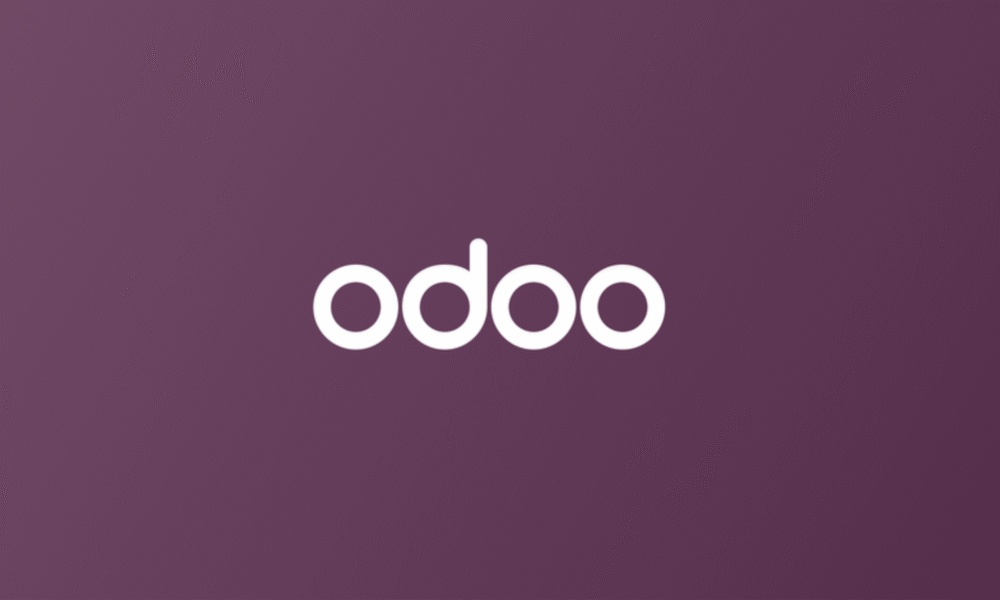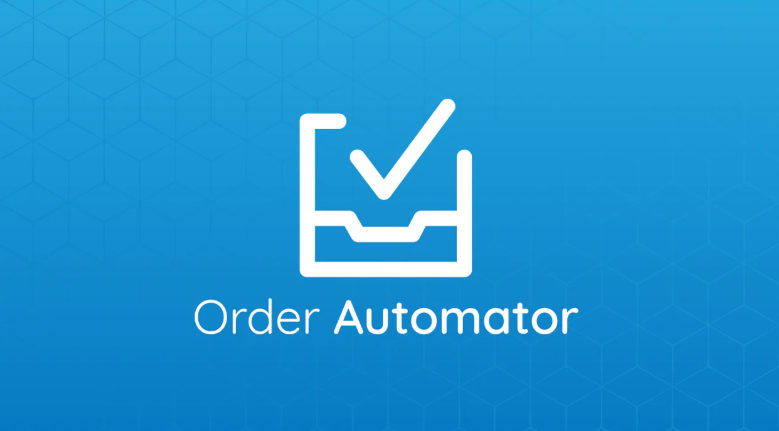If you've ever felt the frustration of managing multiple online accounts, whether…
Odoo Review For Beginners: The Pros, Cons, and Pricing

Odoo is a comprehensive suite of business applications with a robust e-commerce platform.
This open-source software provides a wide range of integrated tools to manage all aspects of your online store, from website creation and product management to sales, inventory, and customer relationship management (CRM).
This post will provide a comprehensive Odoo review for e-commerce, covering everything a beginner needs to know.
Table of Contents
What is Odoo?
Odoo is an all-in-one business management software that offers a modular and customizable approach to running a business. It’s like a Swiss Army knife for entrepreneurs and companies of all sizes.
Odoo comes in different “flavors” to suit various needs and preferences: online (SaaS), community (self-hosted), and enterprise.
At its core, the Community edition of Odoo is open-source, meaning it’s free to use and modify. However, Odoo also offers an Enterprise edition with additional features and support.
Behind Odoo is a vibrant community of over 100,000 developers collaborating worldwide.
They are united by the spirit of open source and a shared vision to transform companies and empower employees.
For e-commerce, Odoo provides a powerful platform with integrated apps for:
- Website Building: Create a professional, user-friendly online store with customizable templates and drag-and-drop functionality. Odoo even offers AI-powered suggestions for website layout and content based on your industry, making it even easier for beginners to get started.
- Product Management: Effortlessly add, categorize, and manage your products, including variants, pricing, and inventory. Odoo provides comprehensive product details, allowing you to specify product types, units of measure, and packaging options and even track products using serial or lot numbers.
- Sales and Orders: Process orders, manage payments, and track shipments seamlessly.
- Inventory Management: Keep track of your stock levels, automate replenishment, and optimize warehouse operations.
- CRM: Build and nurture customer relationships, track leads, and manage marketing campaigns.
How Does Odoo Work for E-commerce?
Odoo’s modular design allows you to select and integrate the apps that best suit your needs. For e-commerce, the core apps work together to streamline your operations:
- Website: The Website app empowers you to build your online store. You can choose from various themes, customize the design, and add features like product carousels, blogs, and customer testimonials.
- eCommerce: This app seamlessly integrates with the Website to add e-commerce functionality. You can efficiently manage products, process orders, and track sales.
- Sales: The Sales app actively streamlines the creation and management of quotations, orders, and invoices. It automates many sales processes, such as generating invoices and sending order confirmations.
- Inventory: This app diligently tracks stock levels, manages warehouse locations, and automates inventory valuation.
- CRM: The CRM app helps you effectively manage customer interactions, track leads, and nurture relationships.
These apps work together seamlessly, sharing data and automating tasks to improve efficiency and reduce manual effort. For example, when a customer orders on your Website, the system automatically updates your inventory and generates a sales order.
Key Features of Odoo for E-commerce
Odoo offers a wide range of features specifically designed for e-commerce businesses:
- User-Friendly Interface: Odoo’s intuitive interface makes navigating and managing your online store easy, even for beginners.
- Mobile-Friendly Websites: Odoo creates responsive websites that adapt to different screen sizes, ensuring a seamless experience for mobile shoppers.
- SEO Tools: Optimize your Website for search engines with built-in SEO tools that help you improve your visibility and attract more organic traffic.
- Product Customization: Offer product variants, such as different sizes, colors, or configurations, to cater to diverse customer preferences.
- Multiple Payment Gateways: Integrate with popular payment gateways like Stripe, PayPal, and Authorize.Net to offer secure and convenient checkout options.
- Shipping Integrations: Calculate shipping costs and manage shipments with integrations to major shipping carriers.
- Dropshipping Capabilities: Facilitate dropshipping by sending delivery requests directly to your suppliers.
- Customer Reviews and Ratings: Allow customers to leave reviews and ratings on your products, building trust and social proof.
- Wishlist: Customers should be able to save their favorite products for later purchase, enhancing their shopping experience.
- Easy Checkout Process: Offer a straightforward and user-friendly process to minimize cart abandonment and maximize conversions.
- Marketing Tools: Integrate with Odoo’s marketing apps to create email campaigns, manage social media, and track customer engagement.
- Reporting and Analytics: Built-in reporting tools allow you to track key metrics like sales, website traffic, and customer behavior.
Odoo Tutorials and Resources
Odoo recognizes the importance of supporting beginners. To that end, they provide comprehensive tutorials for their Website and eCommerce apps, guiding new users through the platform’s features and functionalities.
Odoo Apps for E-commerce
While the core e-commerce apps provide a solid foundation, Odoo offers a vast app store with thousands of additional apps to extend the functionality of your online store. Some popular eCommerce apps include:
- Themes: Choose from various pre-designed themes to customize the look and feel of your Website.
- Connectors: Integrate with other e-commerce platforms like Amazon, eBay, and Shopify.
- Dropshipping Management: Streamline dropshipping operations with apps that automate order fulfillment and supplier communication.
- Loyalty Programs: Reward repeat customers and encourage loyalty with points-based or discount-based programs.
- Subscription Management: Sell subscription-based products or services and manage recurring billing.
Odoo Pricing
Odoo offers flexible pricing plans to suit different needs and budgets. The main pricing options include:
- One App Free: This plan allows you to use one Odoo app with unlimited users for free. This is an excellent option for small businesses or those starting with Odoo.
- Standard: This plan starts at $31.10 per user per month (billed annually) and gives you access to all Odoo apps.
- Custom: This plan starts at $46.70 per user per month (billed annually) and includes additional features like Odoo Studio for custom app development and multi-company support.
It’s important to note that these prices are based on the number of users, your hosting option (Odoo Online, Odoo.sh, or On-Premise), and your country.
Odoo Community and Support
Odoo boasts a large and active community of users and developers. This community provides valuable resources, including:
- Forums: Ask questions, share knowledge, and connect with Odoo users.
- Documentation: Access comprehensive documentation and tutorials on Odoo’s Website.
- OCA (Odoo Community Association): This non-profit organization provides vital support and resources for the Odoo community. The OCA plays a crucial role in ensuring the quality and security of Odoo apps by conducting rigorous checks and facilitating open upgrades, giving users confidence in the platform’s reliability and sustainability.
Odoo offers official support channels, including email, phone, and online chat.
Advantages and Disadvantages of Odoo
Like any software, Odoo has its strengths and weaknesses. Here’s a summary of the key advantages and disadvantages:
Advantages:
- Comprehensive and Integrated: Odoo offers a wide range of apps that cover all aspects of business management, including e-commerce, CRM, accounting, inventory, and more. This integrated approach streamlines operations and eliminates the need for separate, often incompatible, systems.
- Cost-Effective: Odoo’s open-source nature and flexible pricing plans make it an affordable solution for businesses of all sizes. Unlike Shopify, which often requires paid integrations for essential retail processes, Odoo provides a broader range of built-in functionalities, contributing to its cost-effectiveness.
- Customizable: Odoo’s modular design and open-source code allow extensive customization to meet specific business needs. This flexibility empowers businesses to tailor the software to their unique workflows and requirements.
- User-Friendly: Odoo’s intuitive interface makes it easy to learn and use, even for non-technical users.
- Scalable: Odoo can grow with your business, allowing you to add more users and apps as needed.
- Improved Productivity: Odoo automates many repetitive administrative tasks, freeing up employees to focus on more strategic work and contribute to increased overall productivity.
Disadvantages:
- Learning Curve: While user-friendly, Odoo’s vast functionality can present a learning curve for new users.
- Technical Expertise: Customizing Odoo or troubleshooting complex issues may require technical expertise.
- Resource Intensive: Odoo can be resource-intensive, especially with many users or complex configurations.
- Limited Support for Community Edition: While Odoo offers official support, it’s primarily focused on the Enterprise edition.
Odoo vs. Other E-commerce Platforms
Odoo is often compared to other popular ecommerce platforms like Shopify, Magento, and WooCommerce. Here’s a brief comparison:

Pricing Free and paid plans Paid plans only Free and paid plans Free and paid plans
Odoo’s main advantage lies in its comprehensive and integrated approach. It offers a complete suite of business apps, making it a good choice for businesses that need more than just an online store.
As industry reports highlight, this integrated approach can also prevent data integrity problems that often arise when connecting separate e-commerce platforms to an ERP system.
However, it may not be the best choice for businesses with limited technical expertise or those prioritizing ease of use.
For example, Magento boasts advanced SEO tools that provide more granular control over website optimization than Odoo.
On the other hand, Shopify has limitations with recurring payments and may require additional apps or integrations to support this functionality.
Conclusion
Odoo is a powerful and versatile e-commerce platform. Its comprehensive features, open-source nature, and flexible pricing make it an attractive option for businesses of all sizes.
While it may present a learning curve and require some technical expertise for advanced customization, Odoo’s integrated approach and vast app store provide the tools you need to build and grow a successful online store.
For beginners venturing into the world of e-commerce, Odoo offers a particularly compelling solution. Its user-friendly interface, comprehensive tutorials, and supportive community can help overcome common challenges in setting up and running an online store.
The integrated nature of Odoo ensures that all aspects of your business, from website creation and product management to sales and customer relationships, are managed seamlessly within a single platform.
This eliminates the need for juggling multiple systems and reduces the risk of data inconsistencies, allowing beginners to focus on what matters most: building their brand and growing their business.
By understanding the basics of Odoo for e-commerce, beginners can leverage this platform to streamline their operations, improve efficiency, and enhance the customer experience.



